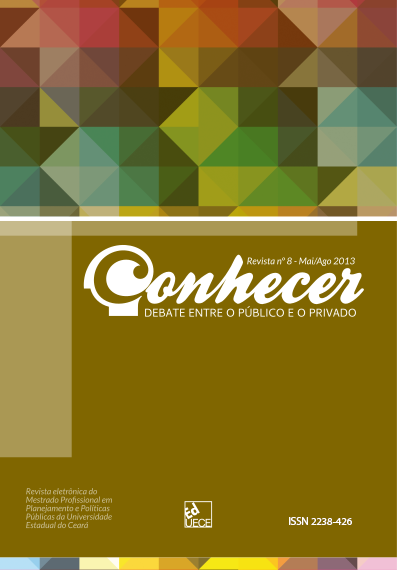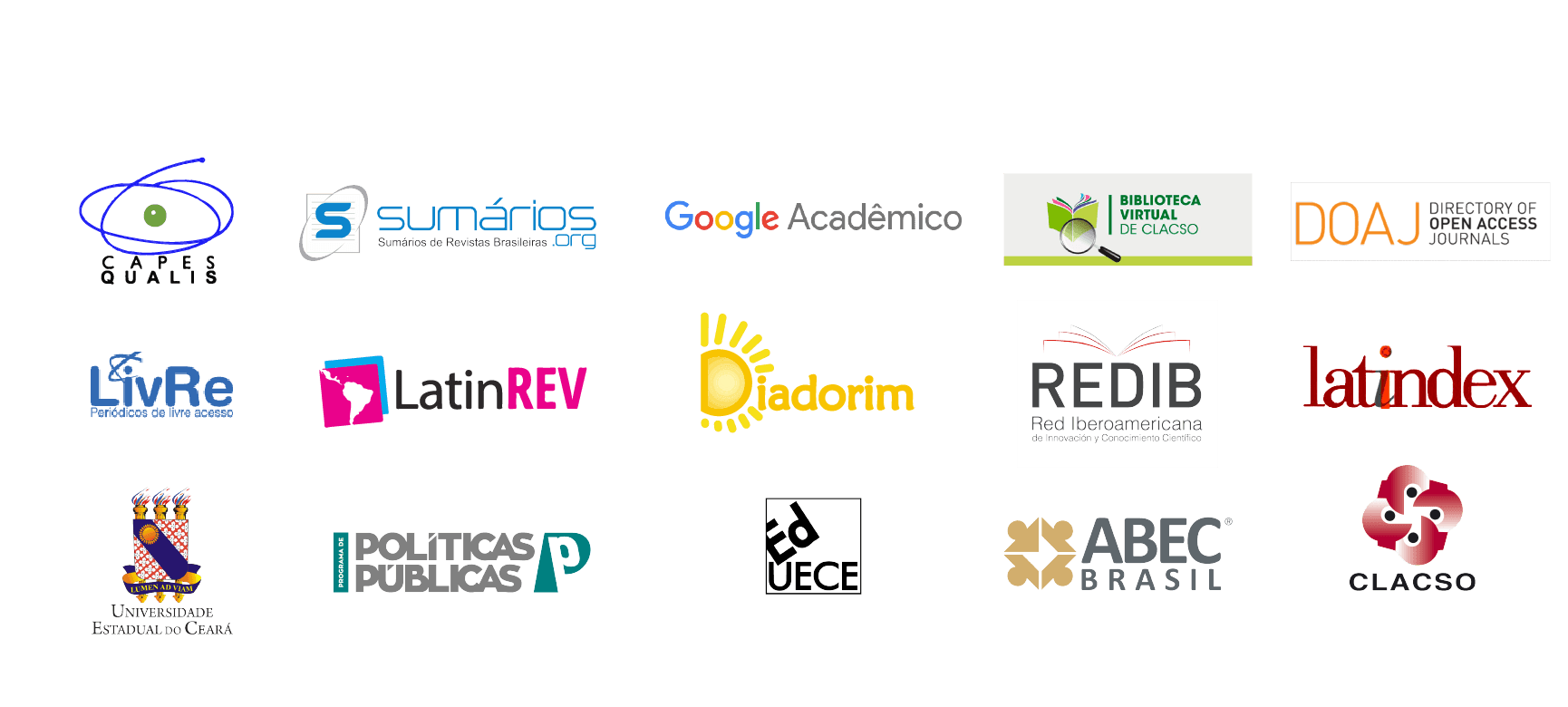A Educação Fiscal sob a Ótica do Aluno da Escola Pública Estadual do Ceará que Participa do Projeto Bolsa Educação Fiscal e Cidadania
Mots-clés :
Educação fiscal, avaliação, programas sociais, cidadania, educação fiscalRésumé
A pesquisa realizada para dar suporte á presente dissertação teve como objetivo avaliar, sob a ótica do aluno da escola pública que participa do Projeto Bolsa Educação Fiscal e Cidadania a eficácia da educação fiscal na construção da cidadania. Quanto à metodologia, trata-se de investigação eminentemente qualitativa, constando de pesquisa bibliográfica, documental e de campo. Na pesquisa documental foram examinados documentos oficias oriundos da Secretaria da Fazenda do Estado, tais como; Termo de Cooperação Técnica, Decretos Estaduais, Relatórios de programas e campanhas estaduais. Pesquisa de natureza eminentemente qualitativa, que teve como população os duzentos e cinquenta alunos da rede pública estadual, que participam do projeto Bolsa Educação Fiscal e Cidadania no município de Fortaleza-Ce. Com relação à amostra, foi utilizado um critério de saturação, de natureza intencional e representativa. A quantidade de entrevistados seguiu um ponto de saturação, sendo definida pela quantidade de repetições de respostas e a escassez de diferenças das mesmas abrangeu trinta alunos que participam do referido projeto. Estudo empírico, cujos dados serão discutidos a seguir, realizou-se na Sede da Secretaria da Fazenda do Estado com os estagiários bolsistas, na faixa etária entre 16 e 18 anos, lotados no setor responsável pela Campanha “sua nota vale dinheiro”, no período de Janeiro a Março de 2012. Quanto aos instrumentos de coleta de dados consistiu de uma entrevista semiestruturada, pré-elaborada mediante roteiro com perguntas abertas, visando identificar a efetividade das ações do Projeto “Bolsa Educação Fiscal e Cidadania” na formação da cidadania do aluno que participa do projeto. Buscou-se identificar o perfil socioeconômico e cultural do aluno, avaliar a eficácia do curso monitor de educação fiscal e identificar a disseminação da educação fiscal, desenvolvidas pelos alunos na escola pública. Entre os principais resultados, destaca-se o seguinte: os entrevistados são, na maioria, do gênero feminino; dividem os recursos da bolsa com suas famílias; têm a Internet como principal meio de entretenimento e cultura; sob a ótica deles o Curso Monitor de Educação Fiscal é uma ação eficaz para despertar a cidadania, apesar da resumida carga horária; declararam ter adquirido novos conhecimentos e novas posturas acerca do tributo e entendimento sobre a relação fisco-sociedade; afirmaram encontrar pouco apoio da escola no momento de disseminar os conhecimentos a adquiridos; e que desejariam aprofundar os conhecimentos sobre as funções do Estado na aplicação dos tributos arrecadados.
Téléchargements
Téléchargements
Publiée
Comment citer
Numéro
Rubrique
Licence
Autores que publicam nesta revista concordam com os seguintes termos:
Autores mantém os direitos autorais e concedem à revista o direito de primeira publicação, com o trabalho simultaneamente licenciado sob a Licença Creative Commons Attribution que permite o compartilhamento do trabalho com reconhecimento da autoria e publicação inicial nesta revista.




